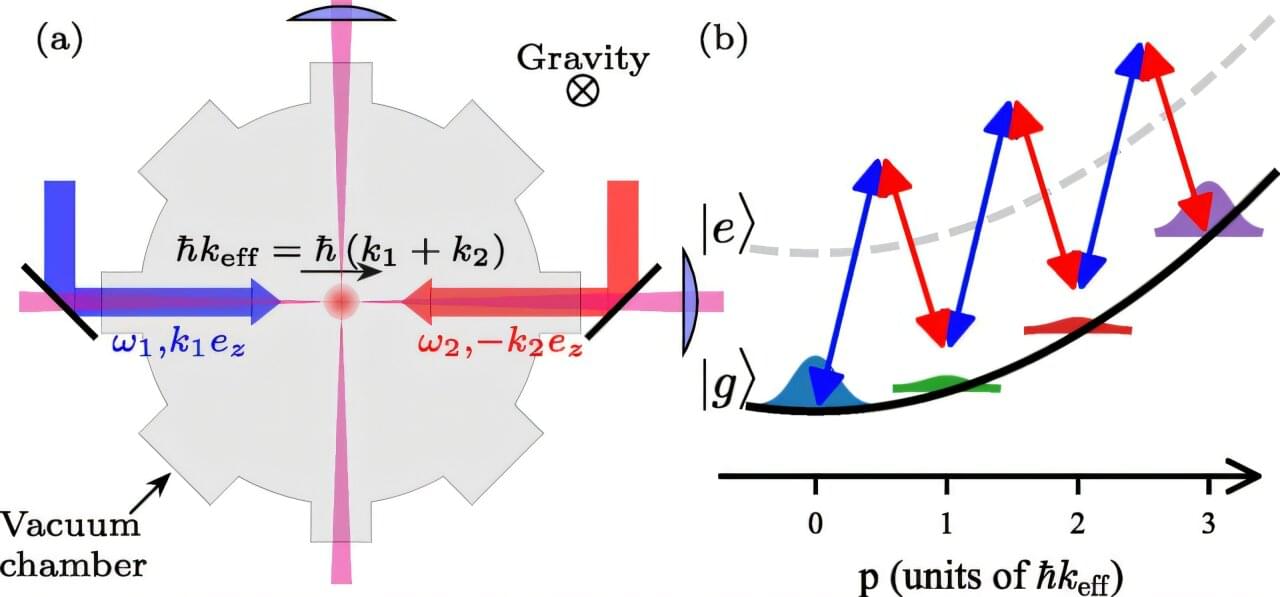Quantum sensors can be significantly more precise than conventional sensors and are used for Earth observation, navigation, material testing, and chemical or biomedical analysis, for example. TU Darmstadt researchers have now developed and tested a technique that makes quantum sensors even more precise.
What is behind this technology? Quantum sensors, based on the wave nature of atoms, use quantum interference to measure accelerations and rotations with extremely high precision. This technology requires optimized beam splitters and mirrors for atoms. However, atoms that are reflected in unintentional ways can significantly impair such measurements.
The scientists therefore use specially designed light pulses as velocity-selective atom mirrors, which reflect the desired atoms and allow parasitic atoms to pass through. This approach reduces the noise in the signal, making the measurements much more precise. The research is published in the journal Physical Review Research.
